antibiotics
Latest
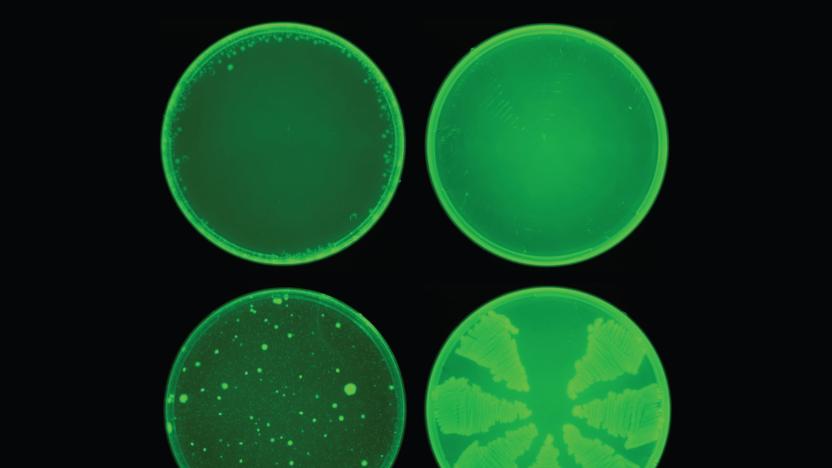
AI discovers antibiotic that kills even highly resistant bacteria
The use of AI to discover medicine appears to be paying off. MIT scientists have revealed that their AI discovered an antibiotic compound, halicin (named after 2001's HAL 9000), that can not only kill many forms of resistant bacteria but do so in a novel way. Where many antibiotics are slight spins on existing medicine, halicin wipes out bacteria by wrecking their ability to maintain the electrochemical gradient necessary to produce energy-storing molecules. That's difficult for bacteria to withstand -- E. coli didn't develop any resistance in 30 days where it fought off the more conventional antibiotic cipofloxacin within three days.
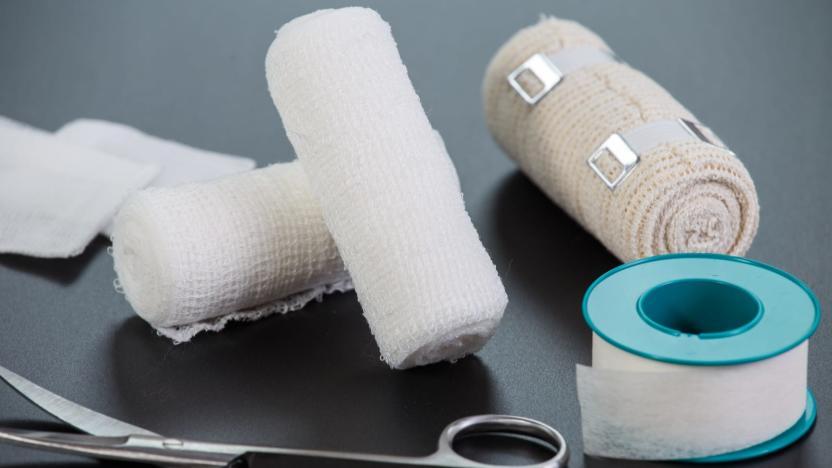
Color-changing bandages detect and treat drug-resistant infections
It may sound dramatic, but antibiotic resistance is one of the biggest threats to global health. According to the World Health Organization (WHO), it's urgent that we change the way we prescribe and use antibiotics. One approach might be to use bandages that sense and treat bacterial infections, even when the pathogen shows resistance. In a paper published by ACS Central Science, researchers from the Chinese Academy of Science explain how they've developed a way to do just that.

Gene-modified viruses rescue patient from drug-resistant 'superbug'
Doctors normally resort to bacteriophages (bacteria-killing viruses) to kill antibiotic-resistant "superbugs" only when they've run out of options, in part because it's difficult to find the ideal example. It can take months or more just to find a viable candidate. However, they might have a faster solution -- researchers have successfully used genetically modified viruses to treat a chronic, resistant infection in a teenage girl who otherwise faced a bleak prognosis following a lung transplant.
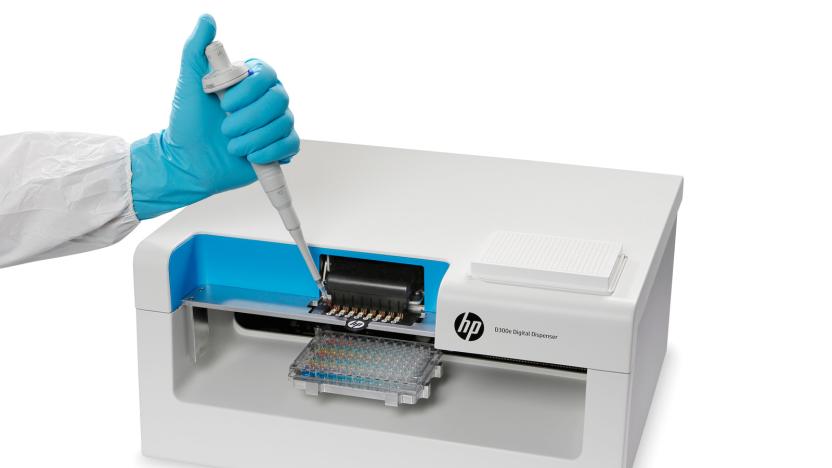
CDC uses HP bioprinters to speed up testing for new antibiotics
The Center for Disease Control and Prevention is turning to some bleeding edge tech in its bid to stamp out drug-resistant 'superbug' bacteria. It's buying a slew of HP bioprinters (the D300e you see above) as part of a pilot program that could speed up the testing of more effective antibiotics. The machines will give regional labs in New York, Minnesota, Tennessee and Wisconsin their first shot at printing drug samples used for developing and running antimicrobial susceptibility tests. Hospitals won't have to wait for testing or else risk mistakes like overusing drugs.

Doctors can now sift bacteria from your blood using magnets
Sepsis, or blood poisoning, is no joke. More than half the people who contract the condition end up in the morgue. The conventional treatment involve the liberal application of antibiotics at the first sign of infection, though as we discovered on an American pig farm Wednesday, even our best meds may no longer be enough. And that's where the magnets come in.
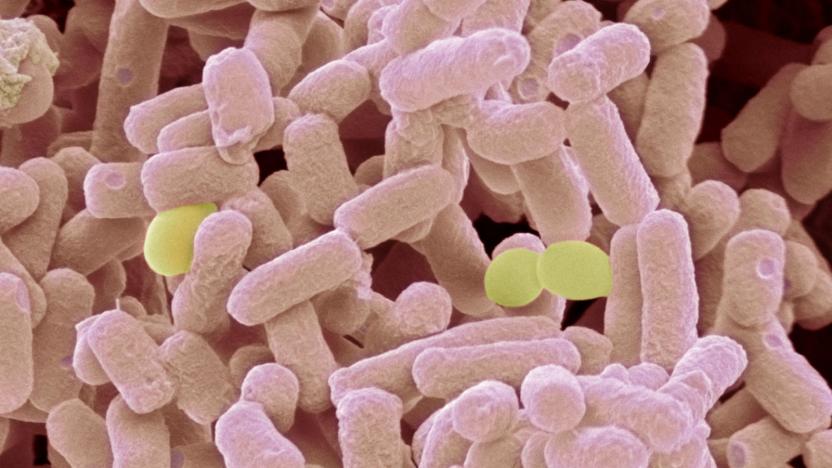
Scientists find bacteria resistant to last-ditch drug treatments
If there wasn't already a reason to develop a solution to drug-resistant "superbugs," there is now. Scientists have found bacteria on an American pig farm that resists carbapenems, a variety of antibiotics used only against germs that resist normal antibiotics. There was a similar incident with cattle earlier in 2016, but that bacteria couldn't transmit its resistance to anything but its offspring -- this strain could jump between bacteria without much trouble.
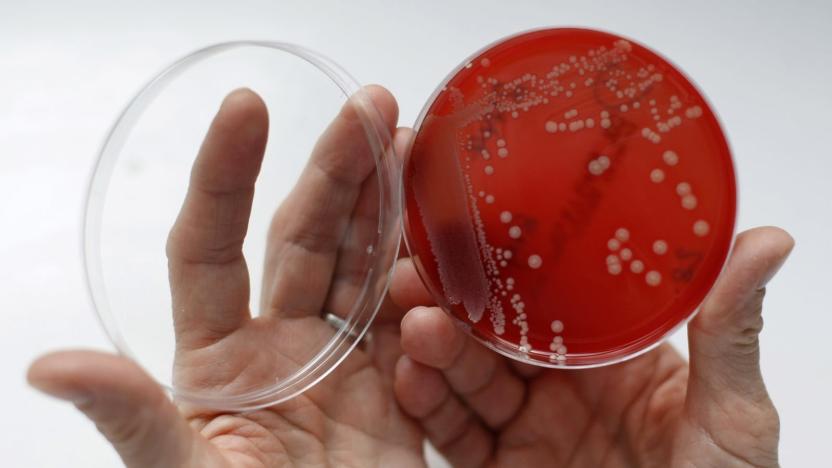
Artificial molecules fight drug-resistant 'superbugs'
Scientists are clearly picking up the pace in their quest to kill antibiotic-resistant "superbugs." Teams at the Universty of Melbourne and UT Southwestern Medical Center have developed composite molecules that overcome the defenses of stubborn bacteria, promising treatment for illnesses that have built up their immunity over the years.

ICYMI: NASA is going to colonize a space rock
try{document.getElementById("aol-cms-player-1").style.display="none";}catch(e){} Today on In Case You Missed It: Nasa launched the OSIRIS-Rex craft this week to begin its long and lonely mission to visit the Bennu asteroid. It'll return to Earth in seven years full of space rocks and hopefully nothing else. Meanwhile, Harvard Medical School has devised a way to see how bacteria evolves to become resistant to antibiotics.

Glowing bandages can reduce the chances of antibiotic-resistant bugs
Bacteria that can shrug off antibiotics is a medical problem that still needs answering, but this prototype could help reduce how much antibiotics are used on patients, and decrease the chances for bugs to become resistant. The experimental bandage from researchers at the University of Bath glows green when it comes into contact with unfriendly bacteria, (hypothetically) alerting medical staff when a wound is infected. A film formed by the body when defends against bacteria releases toxins that react with the bandage, puncturing the membrane of dye capsules stored in the bandage. That dye then glows (in case bright green didn't stand out enough) when it dissolves in the gel around it.

Ancient eye potion proves highly effective against MRSA superbug
What do you get when you mix leeks, garlic, wine and bull gall, then ferment it in a copper pot for nine days? In the Anglo-Saxon era, this concoction made a terrific treatment for eye styes but recently researchers have found it equally effective against the scourge of modern medicine: antibiotic-resistant MRSA "superbugs." Freya Harrison, a microbiologist at the University of Nottingham, UK working with Dr Christina Lee, an Anglo-Saxon expert from the School of English, found the ancient recipe in Bald's Leechbook, an Old English medical compendium. The two decided to test its against modern skin infections. Using the oldest heirloom vegetable varieties she could find, Harrison brewed up the recipe, then let it stand the requisite time. What she poured out displayed some incredible antibiotic characteristics.

New way to find antibiotics helps fight resistant 'superbugs'
Bacterial infections are hard to fight. It's not just that there are "superbugs" which resist antibiotics, like MRSA -- it's that the methods for finding effective antibiotics aren't very efficient. However, scientists have developed a technique that harnesses environmental bacteria to find antimicrobial weapons much more quickly. Their approach uses a mix of moistened soil, liquid agar (bacterial culture) and diluted bacterial samples to isolate microbes for study while giving them the natural conditions they need to grow. At least in theory, medical researchers no longer have to limit their antibiotic development to bacteria that survive in lab conditions. If it grows in dirt, it's a candidate.

$17 million research prize will go towards drug-resistant bacteria studies
Antibiotic resistant bacteria is one of the greatest public health threats of our age, because we're heading for a world where common maladies can overcome any drug that we throw at them. That's why it's been chosen as the goal for this year's Longitude Prize. Like the original, awarded in 1765 to a carpenter who built the first chronometer, a £10 million ($17 million) bounty will be offered to anyone who believes that they can come up with a solution to the problem.

Scientists may have worked out how to defeat antibiotic-resistant superbugs
It's been known for a while that bacteria are rapidly becoming immune to the current range of antibiotics humanity has available. That's why it's harder to get hold of pills now than it was a few years ago, simply because if we don't learn to get by without them, we'll probably all die of some hideous mutated strain of MRSA in a few years' time. Rather than simply developing new antibiotics to throw at the problem, however, a team of researchers from the University of East Anglia and the Diamond Light Source in Oxford claims to have discovered a way to undermine a bacteria's ability to develop drug-resistance in the first place -- causing them to wither and die before it even becomes a problem.

$17 million technology prize lets you choose which of humanity's problems to solve
Technology prizes are nothing new, but they tend to be focused on specific issues like space travel or security flaws. The upcoming Longitude Prize, funded by the Nesta charity and the UK government, will be a little more... ambitious. The duo is promising a £10 million ($17 million) reward for the best solution to one of six greater challenges that humanity faces today, such as developing eco-friendly flight or giving independence to the paralyzed. While the winning entry will have to help the British economy in some way, this is otherwise a truly global competition; anyone can enter, and the end result will ideally help the world at large.





